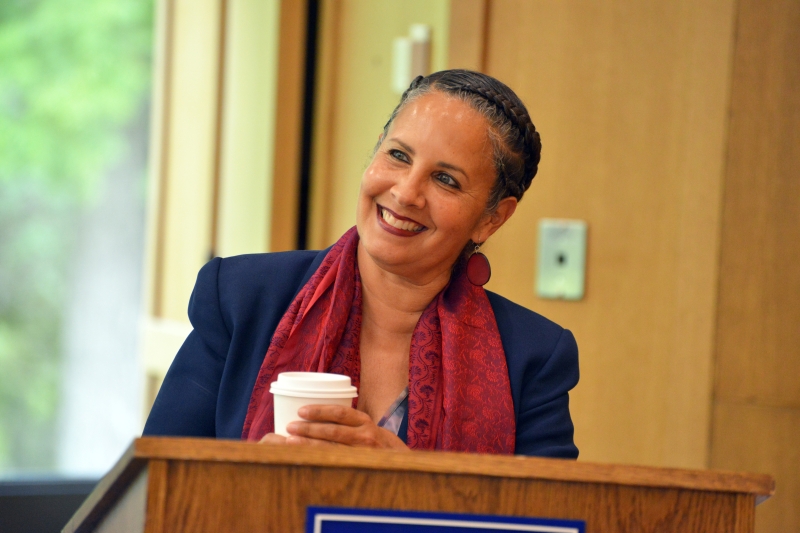Suzette Malveaux Publishes “Fireside Chat” in Harvard Civil Rights-Civil Liberties Law Review Professor Malveaux interviewed Chief Justice Angela Riley of the Supreme Court of the Citizen Potawatomi Nation regarding tribal courts and justice in Indian country.
Washington and Lee Roger D. Groot Professor of Law Suzette Malveaux’s interview of Chief Justice Angela Riley of the Supreme Court of the Citizen Potawatomi Nation regarding tribal courts and justice in Indian country is now available in the Harvard Civil Rights-Civil Liberties Law Review.
Professor Malveaux interviewed Chief Justice Riley as part of the Eleventh Annual John Paul Stevens Lecture, hosted by the Byron R. White Center for the Study of American Constitutional Law and American Indian Law Program, at the University of Colorado Law School (CU). Professor Malveaux hails from the CU faculty, where she directed the Constitutional Law Center, before recently joining W&L Law this fall.
Styled as a “fireside chat,” Professor Malveaux discussed the importance of tribal courts, the strength of indigenous women, the pursuit of justice in Indian country, and more with the Chief Justice, who is an internationally-renowned indigenous rights scholar. She is Professor of Law and American Indian Studies at UCLA, as well as a Special Advisor to the Chancellor on Native American and Indigenous Affairs. In 2003, she became the first woman Justice of the Supreme Court of the Citizen Potawatomi Nation of Oklahoma. In 2010, she was elected as Chief Justice.
During the interview, Justice Riley provided background on Federal Indian Law and the role of tribal courts, including the complexities of jurisdiction within Indian Country—topics Professor Malveaux wants her civil procedure students to be exposed to early in their legal careers. Professor Malveaux and Justice Riley then examined the state of Federal Indian Law in the U.S. Supreme Court, discussing the recent cases McGirt v Oklahoma, Oklahoma v. Castro Huerta, and Brackeen v. Haaland. Justice Riley also shared how her background has shaped and inspired her throughout her illustrious career.
The interview was published as the lead article in the symposium volume entitled “Symposium: Indigenizing Civil Rights and Civil Liberties.” A full transcript of the interview is available on the Harvard Civil Rights-Civil Liberties Law Review website. You can also watch a recording of the fireside chat.
If you know any W&L faculty who would be great profile subjects, tell us about them! Nominate them for a web profile.
 Professor Suzette Malveaux
Professor Suzette Malveaux
You must be logged in to post a comment.